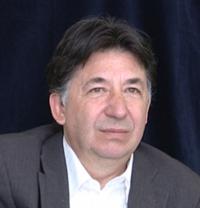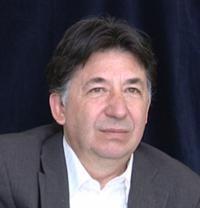In 1989 the civic engagement proved to be a bomb capable of blowing up the totalitarian system
Ján Budaj was born on February 10, 1952, in Bratislava. After graduating from secondary school, he tried to break through the Iron Curtain along with his classmate. However, their escape across the borders of Czechoslovakia was not successful and he became an enemy of the regime with tainted personal evaluation. He was imprisoned many times and often interrogated, and even after being released, he was watched and strictly forbidden to leave the republic. Although he managed to start studying maths and physics at the Pedagogical Faculty in Trnava, he was dismissed in the fourth year of his studies. From 1976 he worked as a stoker and as an auxiliary worker in various enterprises and at the same time he was engaged in organizing a non-party culture and free art. In 1980 he founded the first citizen-oriented samizdat in Slovakia, the periodical called Kontakt (Contact). He cooperated with the secret church and various civic initiatives such as Committee for the Defence of the Unfairly Prosecuted. In the 1980s he got involved in a wide range of anti-regime activities either as an activist, or as their organiser. These activities came to a head when the book Bratislava/nahlas (Bratislava/Aloud) was published in September 1987. Ján Budaj (and other authors) openly criticised the quality of life in the capital city as well as the inability and fustiness of the regime. Ján Budaj was due to his activities under the constant surveillance of the State Security, which tried really hard to discredit him. On November 19, 1989, the movement Public against Violence (VPN) was founded in attendance of many intellectuals from the association called Umelecká beseda (Art Discussion Group). At first Ján Budaj was VPN‘s coordinator and later, from January 1990, he also was its chairman. Ján Budaj became famous mainly due to the mass demonstrations in Bratislava in November and December 1989, when he was an anchorman of meetings held in the SNP Square and the first man of the Velvet Revolution in Slovakia. In the period from November 1989 to the first free elections in June 1990, Ján Budaj led the VPN movement, worked as a Member of Parliament and the first Vice President of the Slovak National Council (SNR), where he also initiated the establishment of the Committee of the Slovak National Council for the Environment. Later, he worked as a Member of the Slovak National Council for the Slovak Democratic Coalition; he was elected the Member of Bratislava City Council and as a leader of the political party called Change from Below - Democratic Union he also stood for a seat in the Parliament in elections in March 2012.


